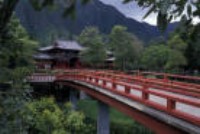Fourth Sunday of Easter
Sr. Kathleen Reiley
May 3, 2020
Acts 2: 14A, 36-41; Psalm 23: 1-3A, 3B4, 5, 6; 1 Peter 2: 20B-25; John 10: 1-10
Sr. Kathleen Reiley, MM, reflects on the importance of being “called by name.”
I live near Tokyo and for several years, whenever I passed by St. Ignatius Church, there was a homeless man sitting on the corner begging. I would usually drop a coin in his tin can and continue on my way.
Then I read an article by Pope Francis about how we should not just give some money to the homeless, but talk with them and recognize them. So the next time I went to St. Ignatius Church, after I placed a few coins in his can, I crouched down and asked, “What’s your name?” He looked so surprised and, with a big smile, said in English, “My name is Tetsuo Nomura.” Then he added in Japanese, “Thank you for talking to me.”
I will never forget that encounter. Not too long after that his place in front of the church was empty, and when I asked one of our Sisters who worked at St. Ignatius, she said he had died and the parish held a small quiet funeral for him.
A big city like Tokyo can be so impersonal, so whenever I can I try to smile and thank the people who work in restaurants or train stations, etc., and when I can I ask their names.
I have heard that the sound of our own name is the most cherished sound for every human being.
When my sister visited me in Japan, because of her health she needed to use a wheel chair to get around. When we arranged with our local train station in Kamakura to have a train attendant help her get on and off the train, a man named Mr. Kazama was assigned to help her. He helped us three days in a row.
My sister was only in Japan for two weeks, but Mr. Kazama and I are still friends. I learned so much from him about how hard the schedule for train attendants is. A couple of times a month they sleep at the station, since the last train arrives at 1:00 a.m, and the first train leaves at 5:00 a.m.
After Mr. Kazama shared his stories with me, I also began to ask the local taxi drivers about their schedules – and theirs, too are quite long and their pay is usually not enough to support a family.
When we look at the beautiful bank buildings and government and corporation buildings in Tokyo, most of us can be unaware of all the people who are at the bottom of the Japanese economy – and yet without them and their hard work the country could not function.
I work as a volunteer counselor on the children’s ward of the National Cancer Research Center Hospital in Tokyo. There, too, the employees who clean the ward are indispensable. One older woman, Mrs. Tanaka, is so kind and warm to all of us. Often she will alert me as to which child I should be sure to visit that day.
One other very special friend is a woman who works at the kiosk on the train platform at Kamakura station. Her name is Ms. Sato. She lives in a very small apartment but when her schedule allows she often comes to a small meditation group that I lead each month.
Since she has started to meditate just 5 minutes each day, she often shares with me how grateful she is for the inner peace and calm that she experiences.
Calling each of these friends by name, as God does for us, I pray that they may have “life and have it to the full.”

